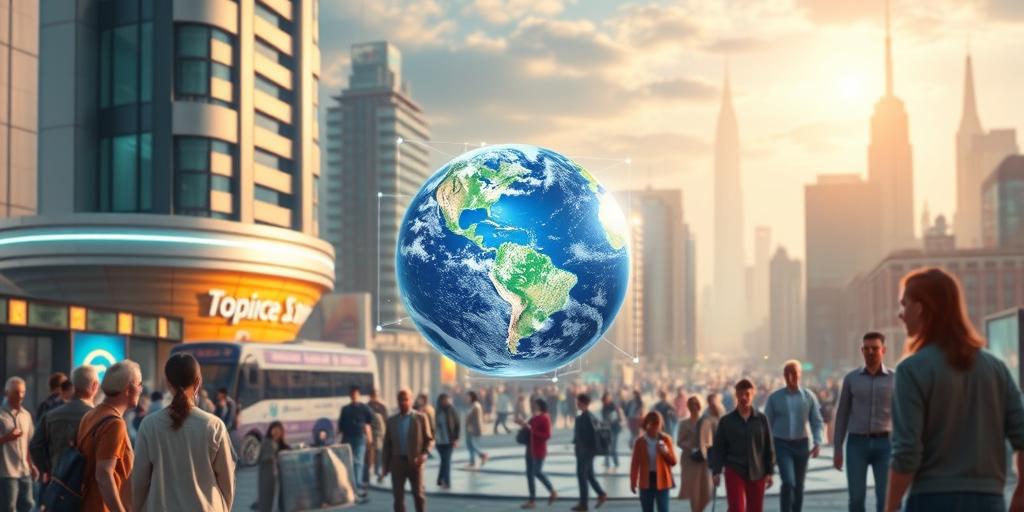The potential of artificial intelligence (AI) to transform our world is undeniable. From revolutionizing healthcare to automating complex tasks, AI is already making a significant impact. But what about its role in achieving world peace? Could AI be the key to a more peaceful future, or is the idea simply a dream? This question has become increasingly relevant as AI technology advances, sparking both hope and concern about its potential impact on global security.
The Promise of AI for Peace
AI can potentially play a crucial role in promoting peace by facilitating conflict resolution, enhancing diplomacy, and improving global security.
AI-Powered Conflict Resolution
Imagine a world where AI algorithms could analyze vast amounts of data to identify potential conflicts, predict their escalation, and suggest solutions for de-escalation. This is the promise of AI-powered conflict resolution. AI systems can be trained on historical data and real-time information to identify patterns and predict potential conflicts. By analyzing factors like social media trends, economic indicators, and political discourse, AI can help us understand the underlying causes of conflict and develop strategies to prevent them.
AI for Diplomacy and Negotiation
AI can also be a powerful tool for enhancing diplomacy and negotiation. AI-powered language translation systems can help bridge communication gaps between different cultures and languages, facilitating understanding and collaboration. Moreover, AI can analyze historical data and negotiation strategies to provide insights and recommendations for effective diplomacy, helping negotiators achieve better outcomes.
AI for Global Security and Surveillance
AI is being used in various ways to improve global security. From facial recognition systems to drone surveillance technology, AI can help identify potential threats and monitor activities in sensitive areas. AI-powered cybersecurity systems can also detect and prevent cyberattacks, protecting critical infrastructure and national security.
The Challenges of AI in Peacebuilding
While AI holds great promise for peace, its application also presents significant challenges.
Bias and Discrimination in AI Systems
One of the most pressing challenges is the potential for bias and discrimination in AI systems. AI algorithms are trained on data sets, and if these data sets contain biases, the AI systems will inherit those biases, potentially leading to unfair or discriminatory outcomes. For example, AI systems used for crime prediction or law enforcement could be biased against certain ethnic groups or socioeconomic backgrounds, perpetuating existing inequalities.
The Risk of AI-Driven Warfare
Another concern is the potential for AI to be used in warfare. The development of autonomous weapons systems, often referred to as “killer robots,” raises ethical and legal questions about the use of AI in combat. The potential for AI systems to make life-or-death decisions without human oversight raises serious concerns about accountability and the potential for unintended consequences.
The Ethical Implications of AI in Peacekeeping
The use of AI in peacekeeping operations also raises ethical dilemmas. AI systems can be used for surveillance, target identification, and even the use of force, potentially leading to human rights violations or the erosion of trust in peacekeeping efforts. We need to carefully consider the ethical implications of using AI in these contexts and ensure that it is used responsibly and in accordance with international humanitarian law.
The Future of AI and Peace
Despite the challenges, the potential for AI to contribute to a more peaceful world remains significant.
Developing Responsible AI for Peace
The key to harnessing the potential of AI for peace lies in developing responsible and ethical AI systems. This requires addressing the biases in AI algorithms, ensuring transparency and accountability in AI decision-making, and establishing clear ethical guidelines for the use of AI in peacebuilding.
The Role of International Cooperation
International cooperation is crucial for developing and implementing responsible AI for peace. Countries need to work together to establish global standards for AI development and deployment, ensuring that AI is used for peaceful purposes and does not pose a threat to global security.
The Potential for AI to Foster Global Understanding
AI can also play a role in fostering global understanding and cooperation. AI-powered language translation systems can help bridge cultural divides, facilitating dialogue and collaboration. AI-based platforms can connect people from different cultures and backgrounds, promoting intercultural exchange and understanding.
A Dream or a Reality?
The question of whether AI will help us achieve world peace is not a simple yes or no. While AI has the potential to be a powerful tool for peacebuilding, it is essential to acknowledge the challenges and risks associated with its use. The success of AI in promoting peace will depend on our ability to develop responsible and ethical AI systems, ensuring that they are used for good and not for harm.
Ultimately, the future of AI and peace depends on human agency. We need to be proactive in shaping the development and deployment of AI technology, ensuring that it aligns with our values and aspirations for a more peaceful world. By working together, we can harness the power of AI to create a future where conflict is resolved peacefully and where global cooperation and understanding prevail.




